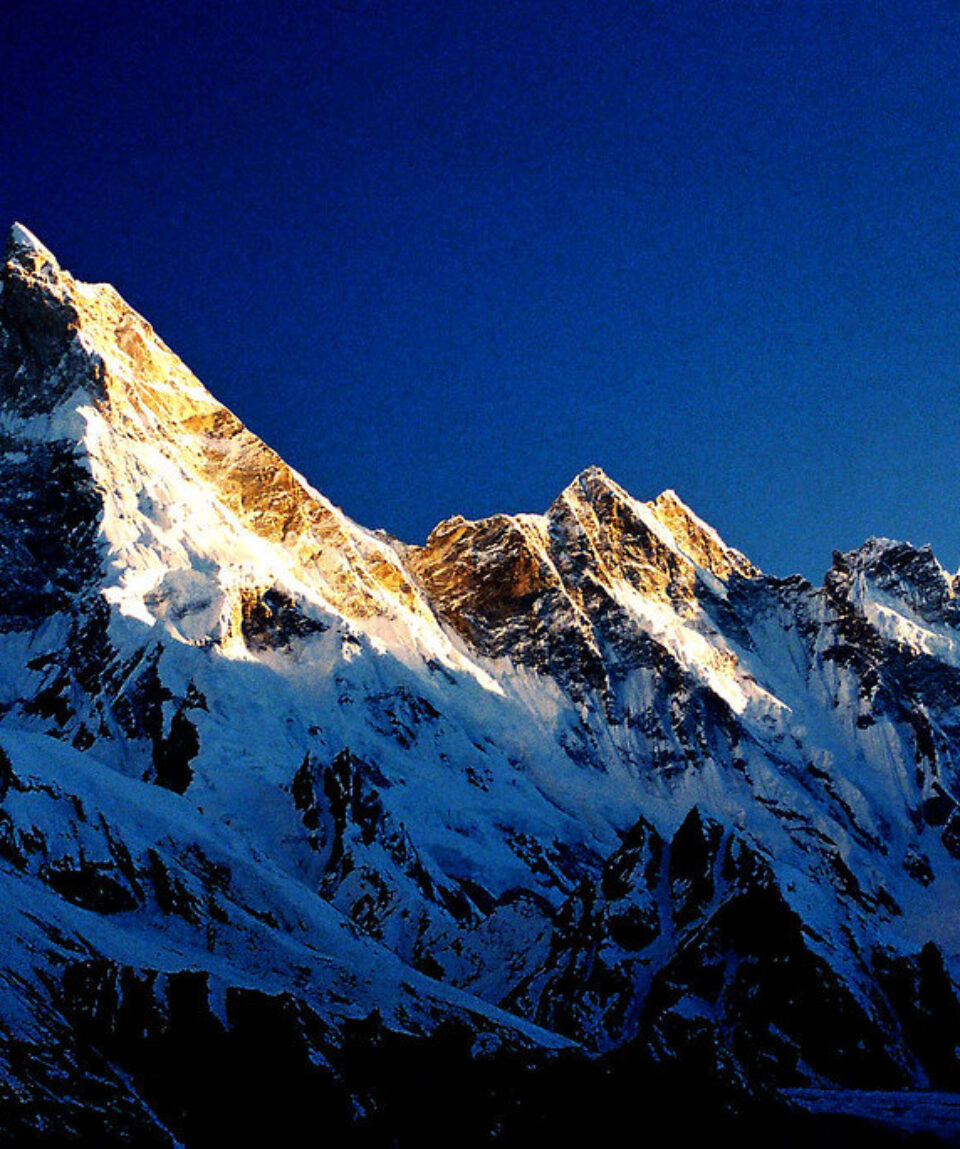Gondogoro Peak Expedition
fromGondogoro Peak Expedition A thrilling mountaineering journey in the Karakoram, conquering the majestic Gondogoro Peak for breathtaking panoramic views
-
Reviews 0 Reviews0/5
-
Vacation Style Holiday TypeCamping, Climbing, Expedition Style, Guided, Mountaineering, Rock Climbing, Trekking
-
Activity Level Tough
-
Group Size Large Group
The Gondogoro Peak Expedition is an amazing expedition that leads participants to the spectacular Gondogoro Peak, which is both difficult and gratifying to accomplish. This excursion provides a unique opportunity for mountaineering in Pakistan’s beautiful Karakoram mountain range.
The excursion usually lasts a few days, beginning with the participants’ arrival in Islamabad, Pakistan’s capital. They go on to Skardu, a thriving town that serves as the entrance to the Karakoram region, from there.
The participants set off for the base camp of Gondogoro Peak after making the necessary preparations and planning logistics in Skardu.
Participants will pass through a variety of sceneries, including lush valleys, challenging terrain, and magnificent glaciers, on the trip to the base camp, which is an incredible adventure in and of itself. They will experience breathtaking scenery, unusual flora and fauna, and the local culture as they travel.
As soon as they arrive at base camp, participants take some time to adjust to the high altitude and get ready for the strenuous ascent. Gondogoro Peak’s ascent requires a combination of physical stamina, mountaineering prowess, and mental fortitude. The path may have challenging sections, incline steeply, and experience potentially hazardous weather, necessitating careful navigation and teamwork.
Experienced guides and Sherpas accompany the climbers the entire time, ensuring their safety, offering assistance, and imparting their local knowledge. To ensure the climbers’ safety, the expedition team will use specialized mountaineering gear and ropes. The spectacular splendor of the valleys, glaciers, and mountains in the area acts as a continual reminder of the rewards that are waiting for climbers at the peak.
Being able to stand atop Gondogoro Peak is an incredible accomplishment. Participants are rewarded with unrivaled panoramic views of the Karakoram range by ascending this beautiful summit. Huge glaciers, towering mountains, and unspoiled environments inspire awe and wonder that will live on in their memory forever.
Following their victory celebration at the top, participants start their ascent back to base camp by retracing their steps through the breathtaking scenery. They will have time to rest, think, and enjoy the memory of their remarkable accomplishment once they are back at base camp.
The Gondogoro Peak Expedition is a wonderful chance to push oneself, take in the splendor of the Karakoram Mountains, and take in the breathtakingly beautiful natural surroundings of Pakistan. A great sense of success and a profound respect for the beauty of the alpine world will be left in participants after this trek, which calls for perseverance, physical health, and a zest for adventure.
Inclusions for both International & local participants
- Adoption of Covid SOPs/Guidelines and Free Safety Pack (Sanitizer, One Mask, and One Pair of Gloves Per Day)
- All domestic flights (20 kg for checked bags, 7 kg for hand luggage)
- All road transfers, including those to and from airports
- Every hotel accommodation in Pakistan (twin-sharing room)
- Every trekking facility in Pakistan is a twin-sharing dome tent.
- Each and every campsite and bridge fee
- All gear needed for hiking (tents, non-personal tools, etc.)
- All meals (breakfast, lunch, and supper) and drinks or water consumed while eating
- dried fruits, tea, and coffee as snacks along the walk
- On the walk, free refills of boiled water are provided.
- Licensed professional guide required by the government
- Mountain guide for equipment alignment, rope fixing, and summit guidance (during climbing days)
- Group equipment for high altitudes (rope, ice crew, snow bar, EPI gas, twin-sharing tent, cooking pots, etc.)
- Every governmental charge and documentation
- Tours of Skardu and Islamabad cities that include all entry fees
- Auxiliary personnel (cook, assistant(s), etc.)
- Personal belongings (14 kg) and mountaineering gear (13 kg) are carried by porters.
- Storage facility for luggage in Skardu (to leave a suitcase there before beginning the journey)
- Basic first aid kit with medications
- Emergency satellite phone
- Trekking route map and trip completion certificate
Exclusions for both International & local participants
- Personal travel insurance (Global Rescue is a recommendation/rescue partner).
(Five supporting documents will be provided) Pakistani visa - International airfare
- Personal items, such as walking sticks, down jackets, and trekking shoes
- Personal climbing gear, such as a helmet, harness, ice axe, mountaineering boot, and two carabiners
- Additional nights in Islamabad (hotel check-in/check-out is at 12 pm) are USD 67 more each night.
- Additional baggage/weight for the trek: US$13 per kg
- Baggage storage in Islamabad is available for USD 28 per bag or piece.
- Gratuities/tips for tour operators, porters, workers, etc.
- Extras include bottled water, a minibar, phone calls, laundry, and souvenirs
- Costs of an early wind-up or return (for example, an early return from a hike for any reason)
- Costs resulting from external factors like earthquakes, landslides, floods, etc.
- Day 01 Arrive at Islamabad International Airport, Islamabad
- Day 02 Fly to Skardu, Karakoram (2,498m)
- Day 03 Spend a Free day in Skardu (2,598m)
- Day 04 Drive to Hushe Valley (3,050m)
- Day 05 Trek to Saicho (3,348m)
- Day 06 Trek to Dalsampa (4,150m)
- Day 07 Trek to Khuispang (4,590m)
- Day 08 Acclimatization at Khuispang (4,590m)
- Day 09-11 Climb Gondogoro Peak (5,748m)
- Day 12 Trek to Saicho
- Day 13 Trek to Hushe and drive to Skardu town
- Day 14 Rest day/contingency plan in Skardu
- Day 15 Fly to Islamabad (590m)
- Day 16 In case of flight cancellations, a contingency day
- Day 17 Return back to Home Country
Please complete the registration form (click the green “register now and pay later” button) on this page to begin the registration process. Once you submit your form, we will contact you.
If your travel dates do not coincide with our departure dates or if you want to walk alone (with a guide, as required by law), we can arrange solo excursions.
Trekking alone is more expensive than hiking with others. However, it’s crucial to realize that climbing Mount K2 is impossible without a guide and, more crucially, porters (even if a visitor doesn’t want them). Reason: By law, guides are not required to carry any equipment. They need porters to transport everyone’s personal belongings, including the porters themselves, as well as tents, food supplies, equipment, and gas. There are no tea houses or other accommodations, unlike in Nepal. There must be taken enough provisions to last 12–14 days.
People travel in groups on our scheduled excursions, but on the route, nearly everyone walks alone, with the guide following the last member of the group. One of the porters or assistants advances in front of the group. The time gap between the first and last can be up to one or two hours. All hikes on Baltoro are fairly long, so nobody is rushed and everyone moves at their own leisure.
Additionally, we plan treks for exclusive groups. Please get in touch with us and let us know the dates that would work best for your group if you were interested in going on a different journey with your own friends or family.
As a group grows in size, the cost of treks for private groups reduces.
Spending some time getting ready before you leave would be quite fair. You can ask a professional trainer for advice or, on the other hand, you should abide by the fundamental guidelines (hike, long walks, and other cardio exercises that will help you build stamina), knowing that your body should be in good enough shape to walk for extended periods of time and climb for extended periods of time on difficult terrain made up of boulders, dirt, snow, and glacial ice.
You’ll feel a range of temperatures while on your trekking vacation. Up to 45 °C, 30 °C, and 26 °C were recorded in Islamabad, Skardu, and Askoli, respectively. Until we reach the camp at Concordia, when the temperature can be as low as 10 °C or more, a typical day will be warm unless the sky is clouded. The slopes leading up to the Gondogoro La Pass will be covered in snow until early July.
We might be able to walk on snow in June along the highest portions of Baltoro Glacier. By mid-July, snow usually starts to melt. In August and September, snowfall may be possible depending on the weather.
Temperature changes are erratic in the Karakoram Range. Temperatures between Paiju and Concordia may drop to -10 °C at any point throughout the trekking season.
Fixed Departures can reach temperatures as low as -10 °C in September. The Karakoram Range is unaffected by monsoon rains, therefore the summer months are ideal for trekking since they offer clear skies. The participants must be ready to deal with any unfavorable weather circumstances, nevertheless, based on our prior experiences and the fact that the weather is unpredictable.
It is customary for participants to at least give the devoted porters a tip for their labor, which includes lugging heavy loads of supplies and luggage. If the participants are pleased with the guide kitchen crew’s assistance, a payment of between 95 and 120 euros (or its equivalent in your currency) can be made to cover the entire cost of this component. Our trek’s tour guide or leader will be essential in determining how much to tip each crew member and staff member. A “thank you” ceremony will be planned at the end for participants to pass off their tips. Porters who depart early will receive tips earlier
The participants will receive all three meals—breakfast, lunch, and dinner—during this excursion. Our menu will contain a mix of foods from abroad and within Pakistan. Pakistan will be the source of the food’s ingredients. Coffee, cereal, tea, eggs, muesli/porridge, toast, and chapatti will all be included in the breakfast meal. On the trek, lunches will be eaten during the lunch breaks. Options include canned or tinned meals (meat, fish), pickles, crackers, chapatti, pate, and cheese, among others. Our lunch menu for the day is heavily influenced by the weather; participants will start or conclude their meals with tea, coffee, juice, soup, etc.
Every night, the meal will be served in the mess tent, where everyone will congregate to eat the freshly cooked food made by the cooks traveling with our crew. As long as they are nutritious and fresh, fresh veggies will be offered during the first few days of the journey. All vegetarian participants must get in touch with our office and let us know in advance if they require a vegetarian meal plan while on the trek.
Iodized water will be given to trekkers in the mornings, while they are taking breaks and camping. Everybody will drink spring water whenever it is available, but if we run out of options, the participants may have to drink glacier water, which may contain silt.
It is common practice to store water in very big kitchen containers, which also aid in settling the silt particles at the bottom. Participants are welcome to bring their own supplies of bi-carbonated soda if they are sensitive to the smell of iodine. Although everyone benefits greatly from traditional approaches, trying out new ones has no negative effects.
The participants must check in at Islamabad International Airport on the first day. At the gates for international arrivals on the airport grounds, our staff or guide will meet and greet our guests. The host will be escorted to their hotel by the guide or crew. If any of our guests do not need to be picked up from the airport, they must let us know in advance.
Two days ahead of their arrival in Pakistan, they must also provide us with the specifics of both their incoming and departing flights. Our office will email you the names and phone numbers of our office staff after receiving confirmation of your registration and payments.
The majority of the nights will be spent tent camping among the majestic mountains, with a few nights being spent in Skardu and the capital city of Islamabad. While the accommodations in Islamabad are in conventional hotels, the lodgings we chose in Skardu town are some of the best. The accommodations we give at the hotels will be twin-sharing rooms with en-suite bathrooms.
The participants will share a tent large enough for two people while camping. Any person who is traveling on this walk alone will be accommodated by sharing a tent and a room with another participant. First preference will be given to stays with people of the same gender for strangers and lone hikers.
However, a participant can choose a separate tent or hotel room if they so choose; however, there will be an additional charge for arranging a separate arrangement. Participants requiring special assistance must notify our office in advance.
The participants will be awakened by our guide for coffee or a warm cup of tea throughout the trekking days, which will be followed by a satisfying meal in the mess tent. Before breakfast, there will be plenty of time to pack the luggage. After breakfast, the camps will be shut down, and the porters will resume carrying supplies and luggage so that the participants can arrive at the lunch location and begin meal preparation before them. Porters will repeat the procedure in order to get dinner ready for the participants by using the “trek earlier” strategy. Before lunch, a typical hike lasts three to four hours.
Typically, lunch takes an hour, so this is a great opportunity to relax, regain strength, write, read, and do other activities.
The length of the walk will be shorter after lunch than before. The camps will already be put up or already be going when you get to the next camping location. Participants will be given a hot beverage when they arrive at the camp, and supper will be served when it is ready. Once at a camp, participants can relax, read, write, interact with others, and take pictures and videos. The temperature typically drops at night, allowing participants to feel cozy in their sleeping bags and enjoy a full night’s sleep before the next day.
It may be necessary to bring portable chargers, storage cards, and extra batteries on the hiking trip. To ensure that your devices continue to work as long as possible, we urge you to compile a list of all the adapters, plugs, and other electrical equipment you could need.
To find out the best portable battery chargers please visit this link.
We strongly advise our guests to take some time to study the official travel advisories on their country’s Foreign Office website because we endorse and advocate all travel and health safety efforts by various nations across the world. Our first goal is to make sure that our guests are safe. Once we are confident in the safety and security, we won’t begin the journeys. We shall be in constant contact and engage in bilateral communication with the guest who has been reserved for Pakistan.
-
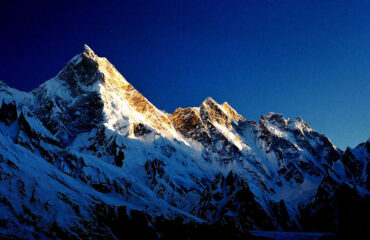 gondogoro peak expedition
gondogoro peak expedition
gondogoro peak expedition
gondogoro peak expedition
-
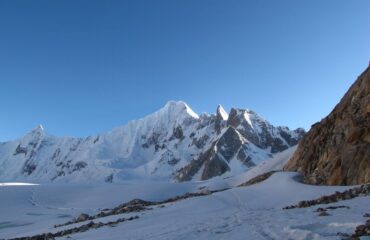 gondogoro peak expedition
gondogoro peak expedition
gondogoro peak expedition
gondogoro peak expedition
-
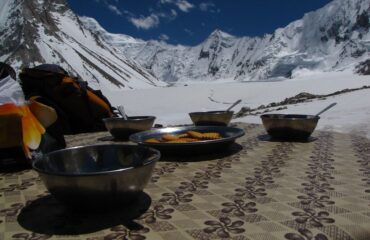 gondogoro peak expedition
gondogoro peak expedition
gondogoro peak expedition
gondogoro peak expedition
-
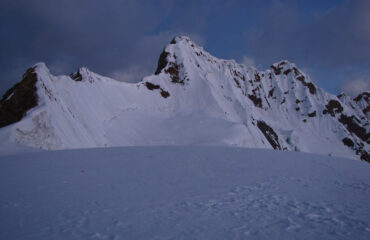 gondogoro peak expedition
gondogoro peak expedition
gondogoro peak expedition
gondogoro peak expedition
-
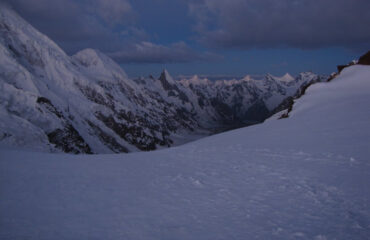 gondogoro peak expedition
gondogoro peak expedition
gondogoro peak expedition
gondogoro peak expedition
-
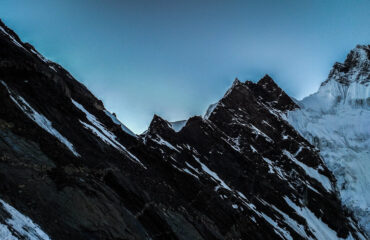 gondogoro peak expedition
gondogoro peak expedition
gondogoro peak expedition
gondogoro peak expedition
-
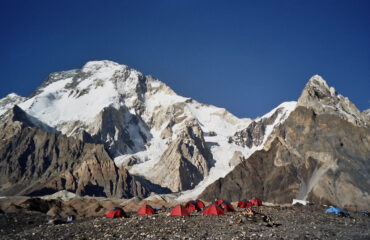 gondogoro peak expedition
gondogoro peak expedition
gondogoro peak expedition
gondogoro peak expedition


